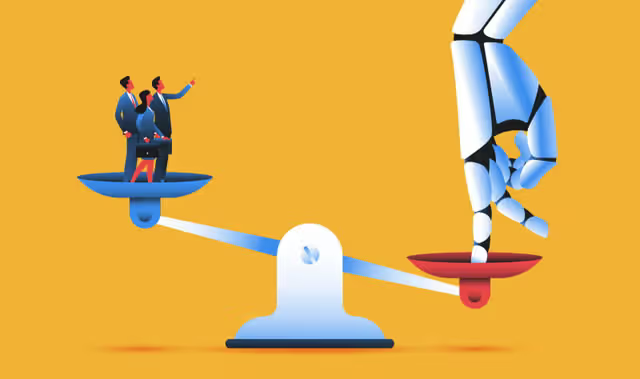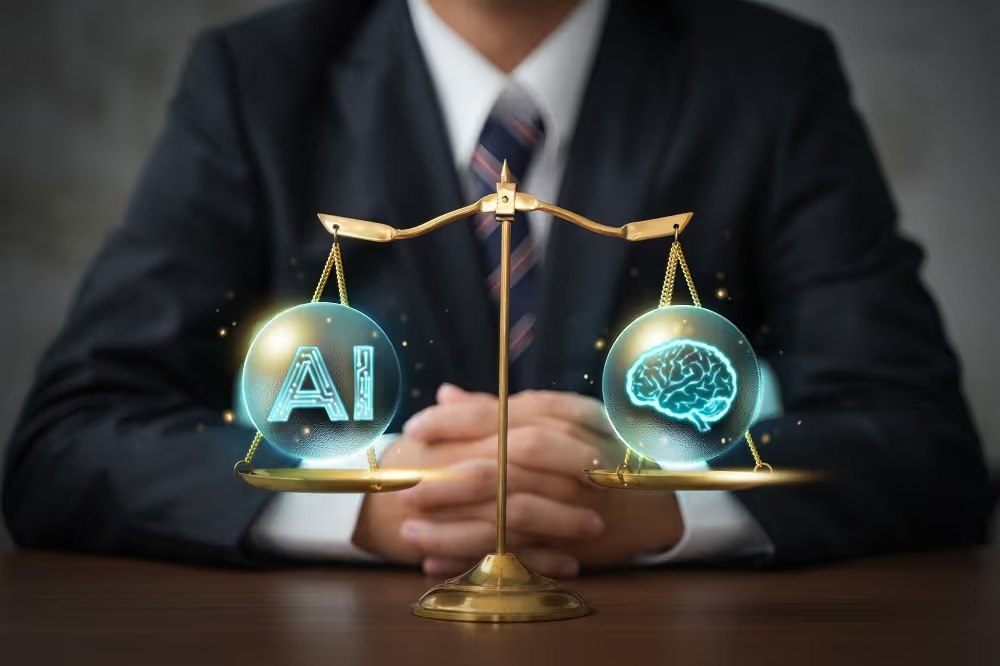
How ethics and AI work together
Artificial Intelligence (AI) has the potential to transform the world, but like any powerful technology, it comes with significant ethical challenges. From autonomous vehicles to medical diagnostic AI systems, how do we ensure that AI is not only intelligent but also fair and human-centered?

Reading time: 4 minutes
How Ethics and AI Work Together: Balancing Innovation and Responsibility
Artificial Intelligence (AI) has the potential to transform the world, but like any powerful technology, it comes with significant ethical challenges. From autonomous vehicles to medical diagnostic AI systems, how do we ensure that AI is not only intelligent but also fair and human-centered? In this article, we explore the relationship between ethics and AI and why maintaining a balance is crucial.
What is Ethics in AI?
Ethics in AI refers to the moral principles that guide the development, implementation, and use of AI systems. It ensures that these systems operate fairly, transparently, and responsibly. This is a complex task, as AI makes decisions based on sophisticated algorithms and vast datasets. Without appropriate oversight, these decisions could lead to bias, inequality, or even harm.
Key Ethical Challenges in AI
- Bias and Discrimination:
- AI models learn from data. If the data contains biases, such as historical or societal inequalities, the AI will replicate them. This can result in unequal treatment in hiring, lending, or legal decisions.
- Privacy: AI accesses vast amounts of data, often including sensitive information. Protecting user privacy and preventing data breaches is critical but challenging, especially in industries like healthcare and finance.
- Accountability: If an AI system causes harm or makes an error, who is responsible? Is it the developer, the user, or the AI itself? Answering this question is essential before large-scale implementations occur.
- Transparency: Many AI systems are “black boxes,” meaning their decision-making processes are difficult to understand or explain. This lack of transparency can erode trust and hinder oversight.
- Autonomy and Control: With the rise of autonomous systems like self-driving cars and drones, determining how much control humans should retain is a pressing question. How much freedom should an AI system have to make decisions independently?
How Ethics and AI Can Coexist
Developing AI responsibly requires strategies that align ethics with innovation:
- Ethical Guidelines and Regulations: Governments and organizations are increasingly creating guidelines for ethical AI use. For example, the EU’s AI regulations prioritize transparency, safety, and human oversight.
- Inclusive Datasets: Using diverse and representative datasets can help reduce bias in AI. This requires careful consideration of which data is collected and how it is interpreted.
- Explainable AI (XAI): Explainable AI focuses on designing systems that can articulate their decision-making processes. This fosters trust and helps identify errors or biases.
- Human Oversight: AI should not operate entirely autonomously. Integrating human oversight into critical processes like healthcare and justice can prevent unethical decisions.
- Ethical Impact Assessments: Just as feasibility studies evaluate technical and financial aspects, ethical impact assessments can identify and mitigate risks before AI implementation.
The Role of Companies Like Lumans in Ethical AI
At Lumans, we believe ethics and AI must go hand in hand. We assist businesses in implementing AI solutions while helping them establish ethical frameworks aligned with their values and goals.
Our services, such as AI consultancy and workshops, are designed to raise awareness of AI’s ethical implications and support responsible integration.
Conclusion
AI offers immense possibilities, but without attention to ethics, these possibilities can turn into risks. It is vital to ensure that AI systems are not only intelligent but also fair, transparent, and human-centered. Businesses, governments, and individuals must collaborate to strike a balance between innovation and responsibility.
Want to learn more about how Lumans can support ethical AI implementation? Visit our website and discover our approach!
This text is optimized using ChatGPT


